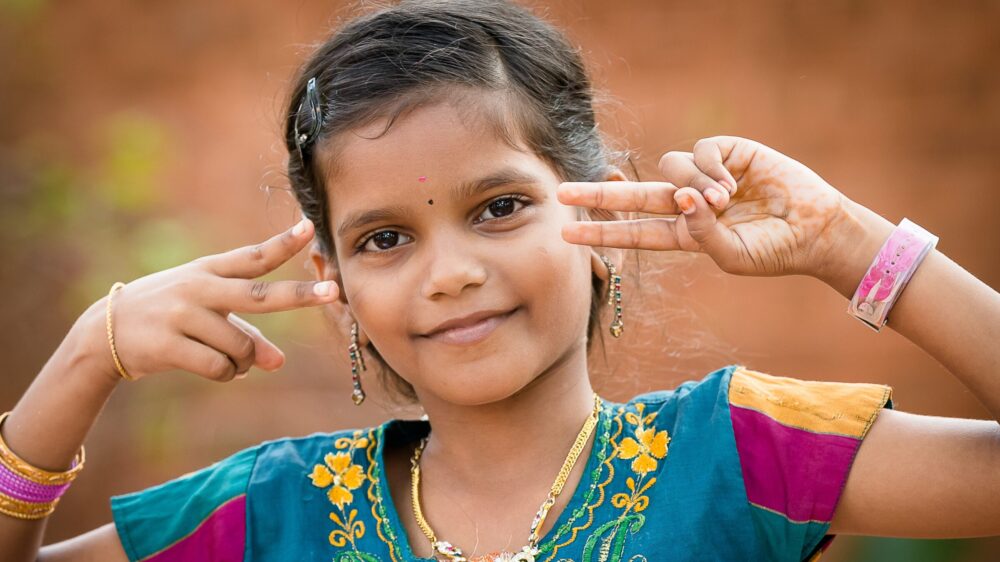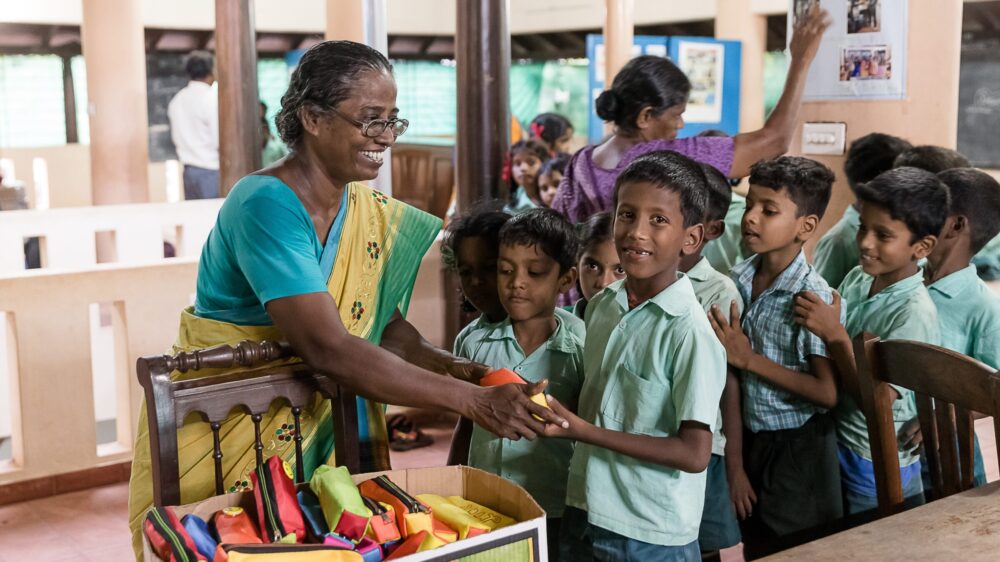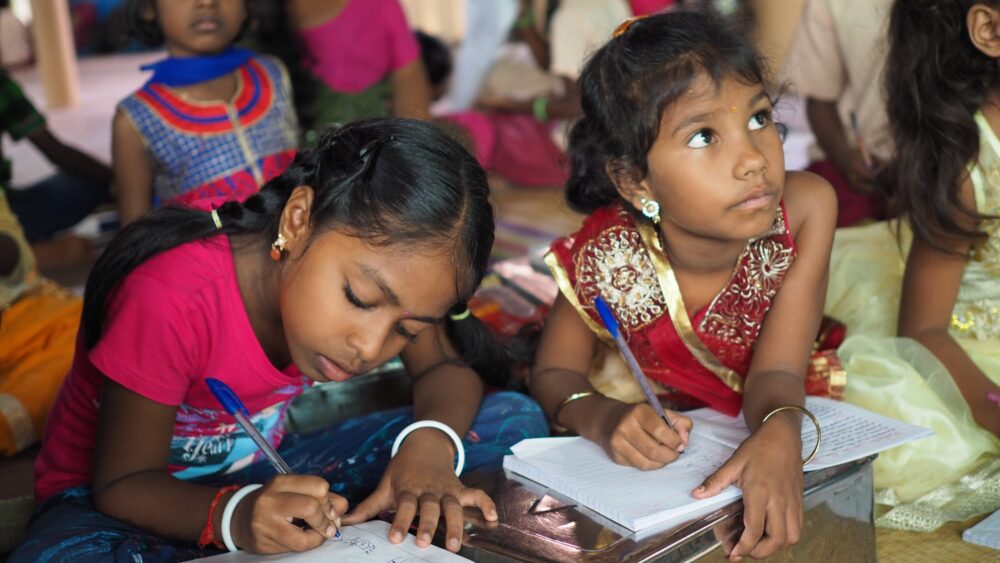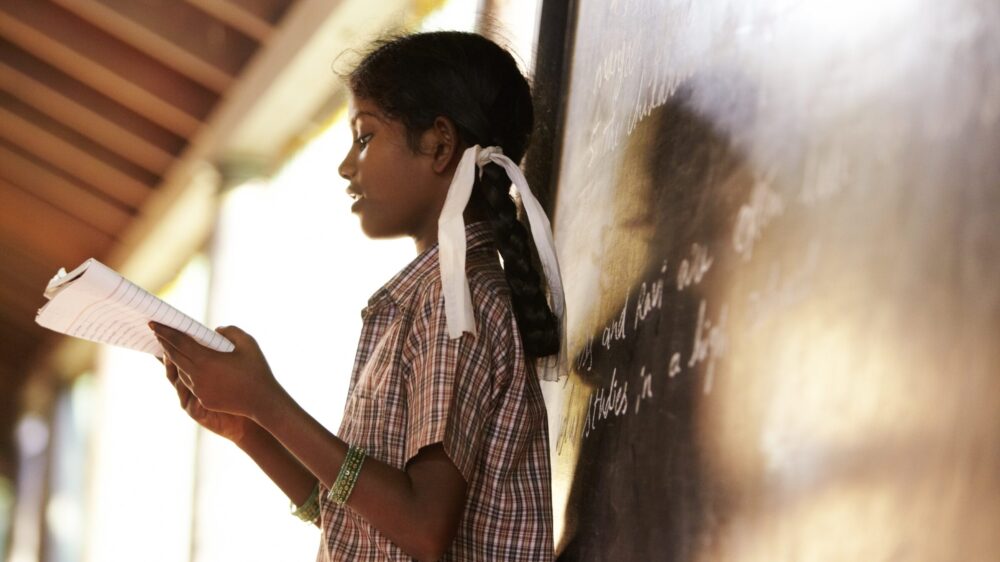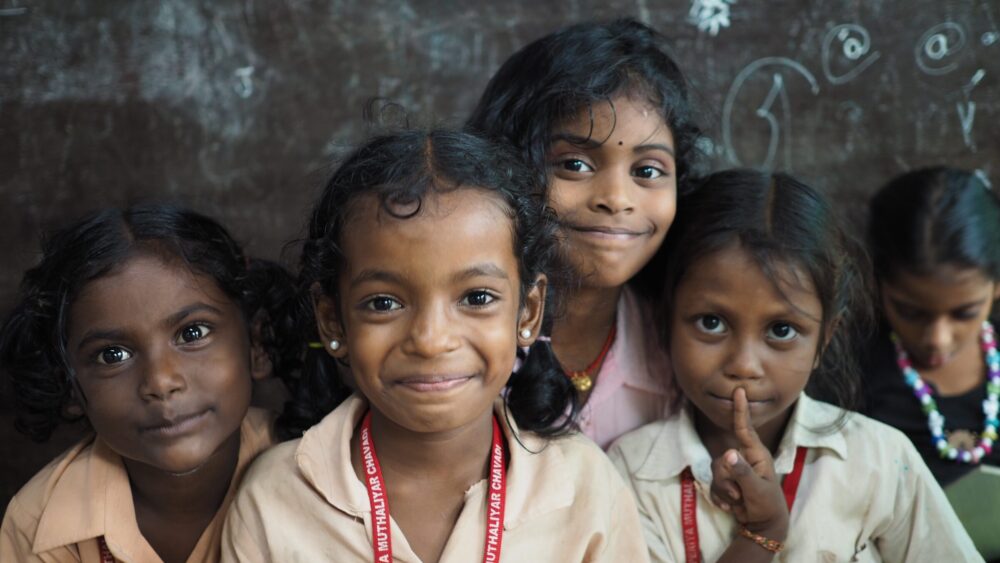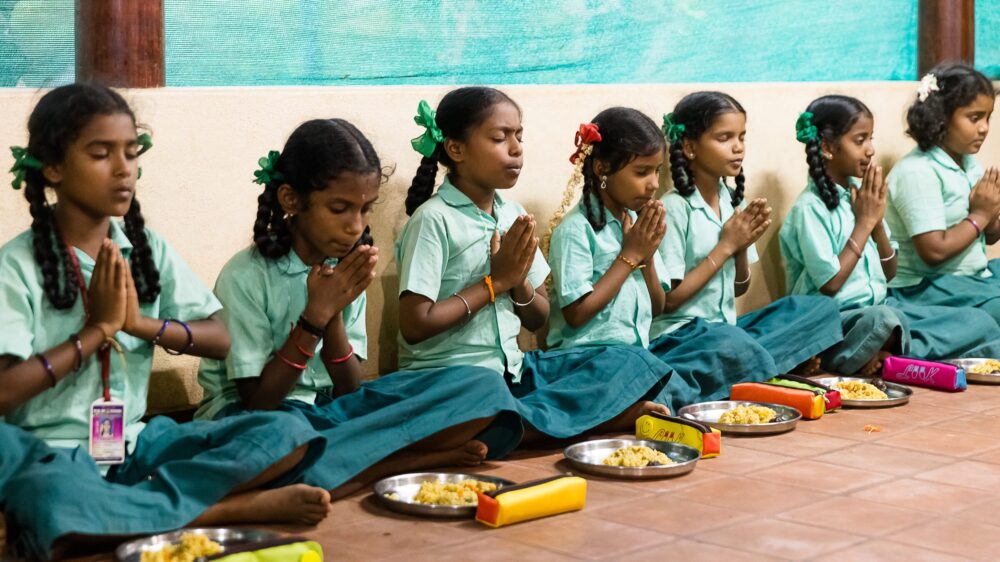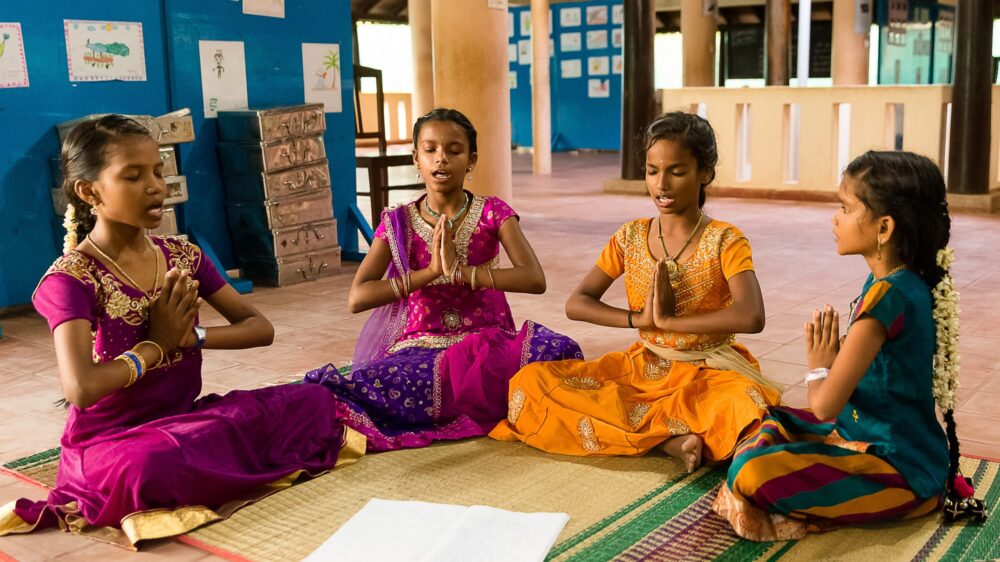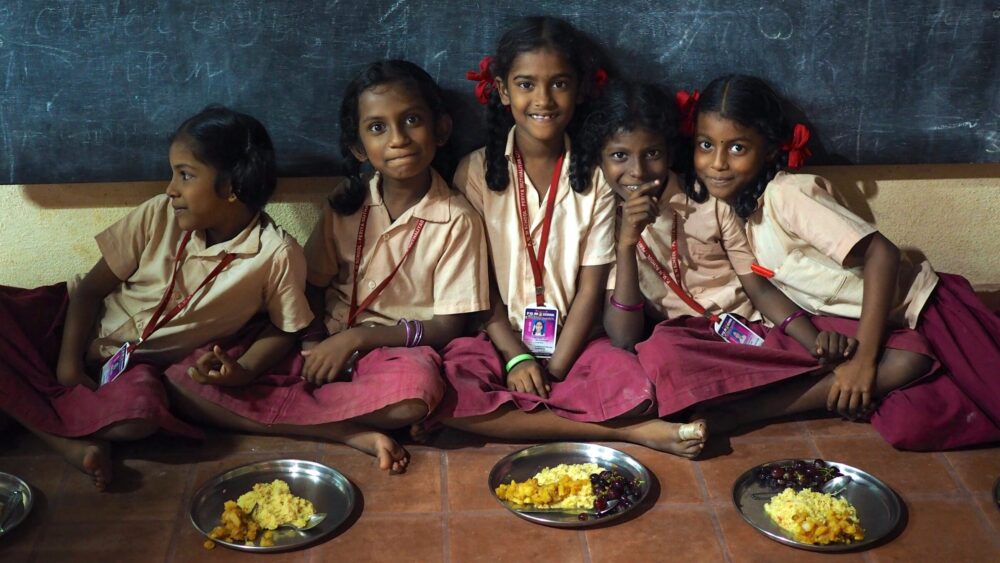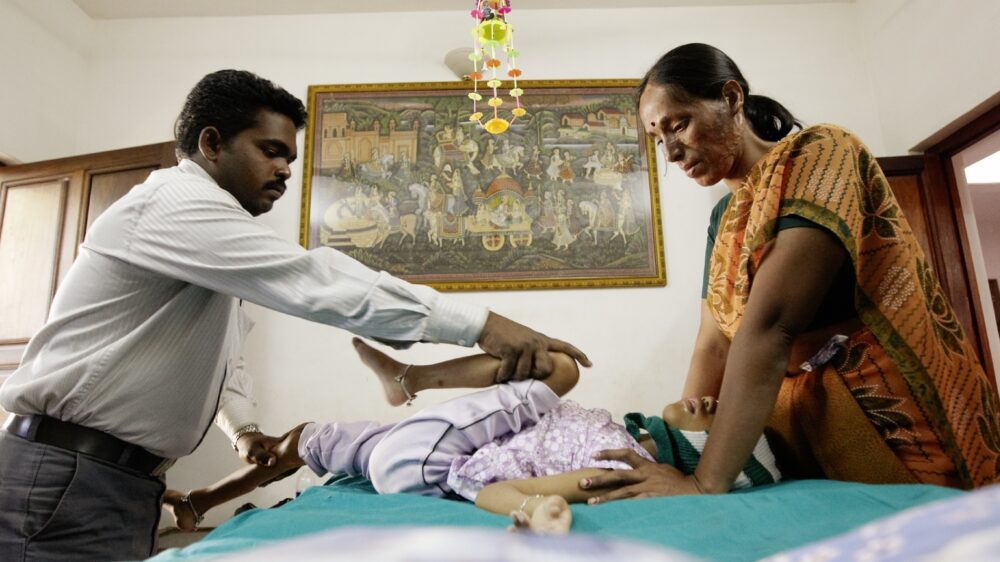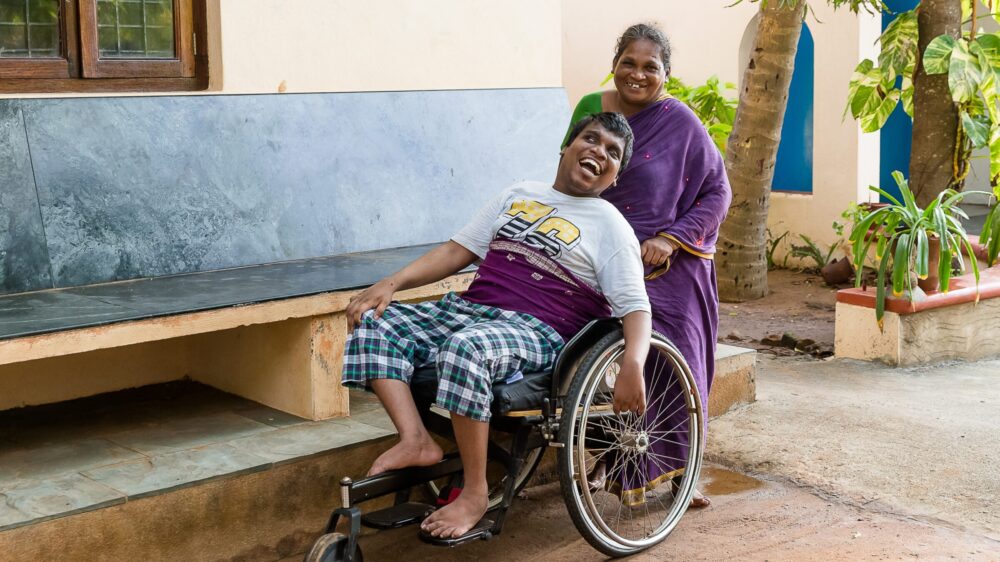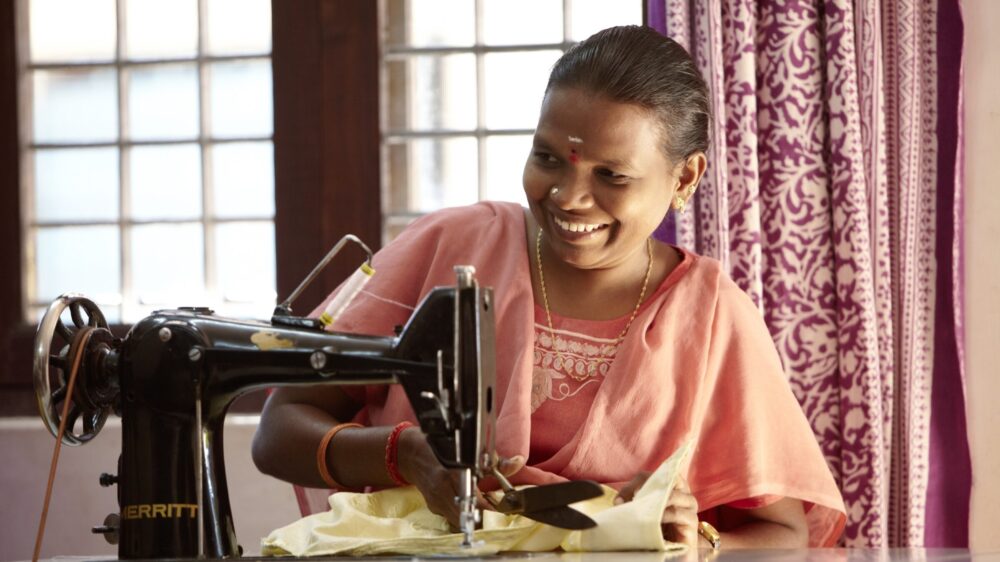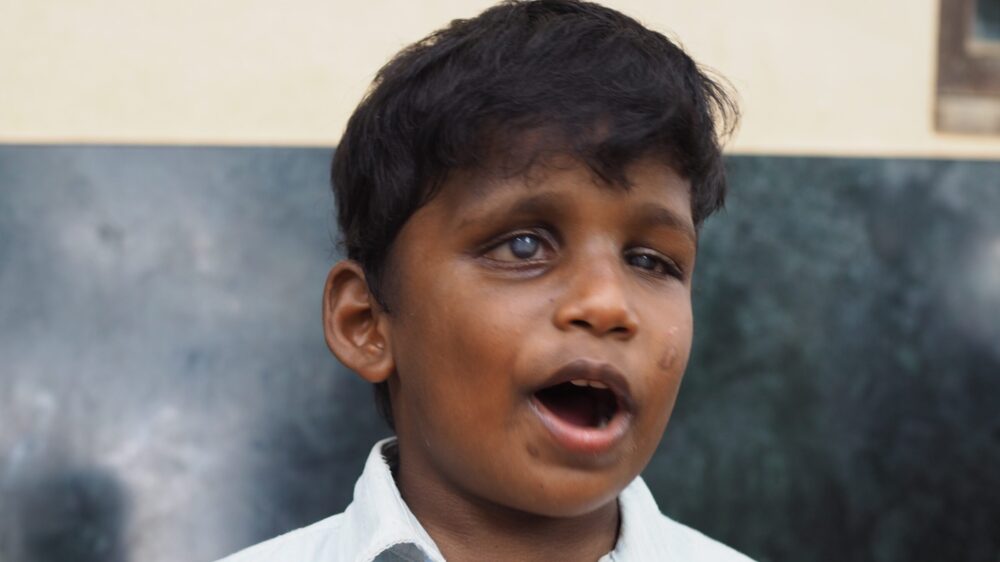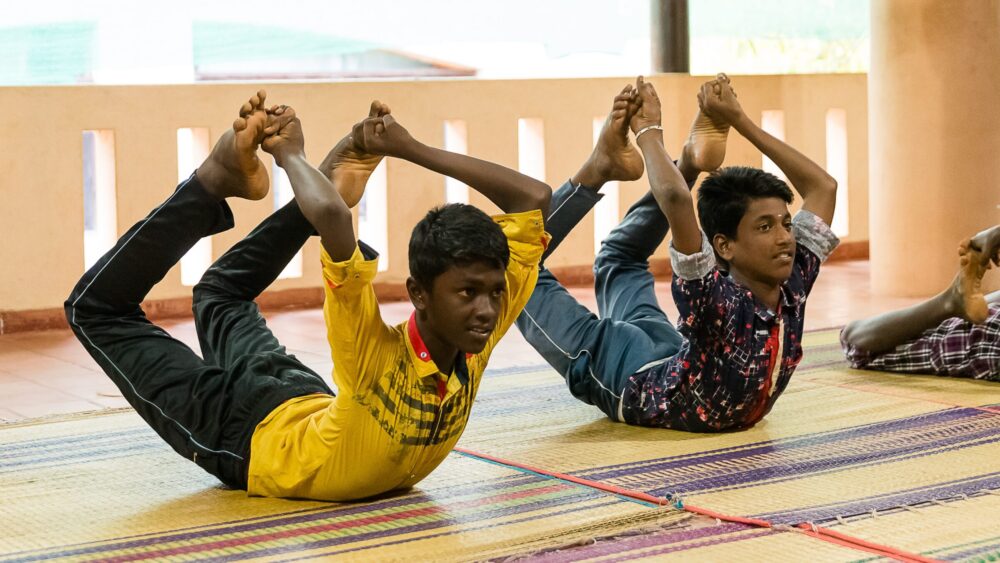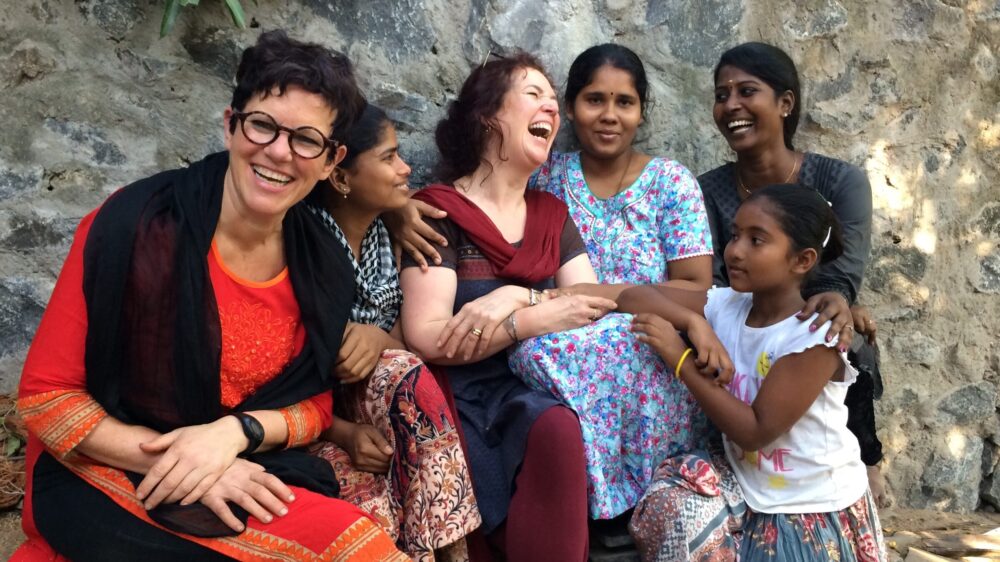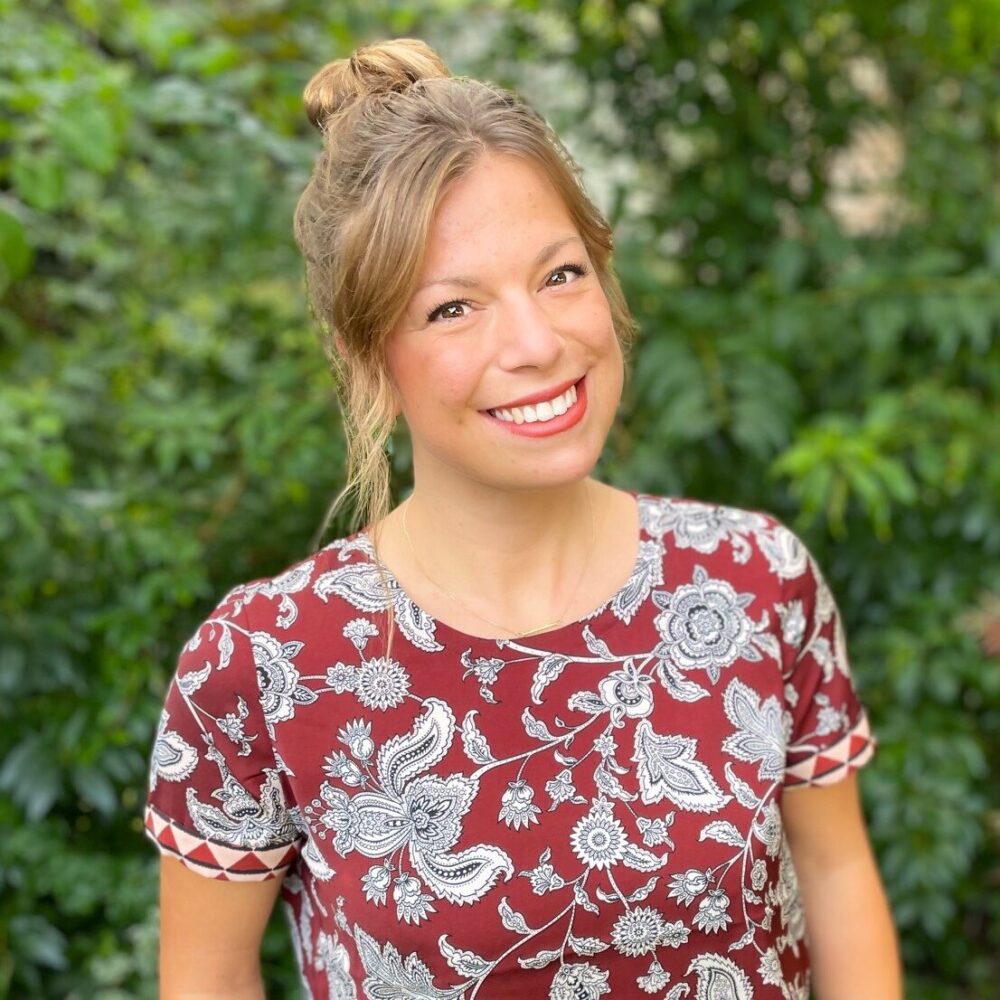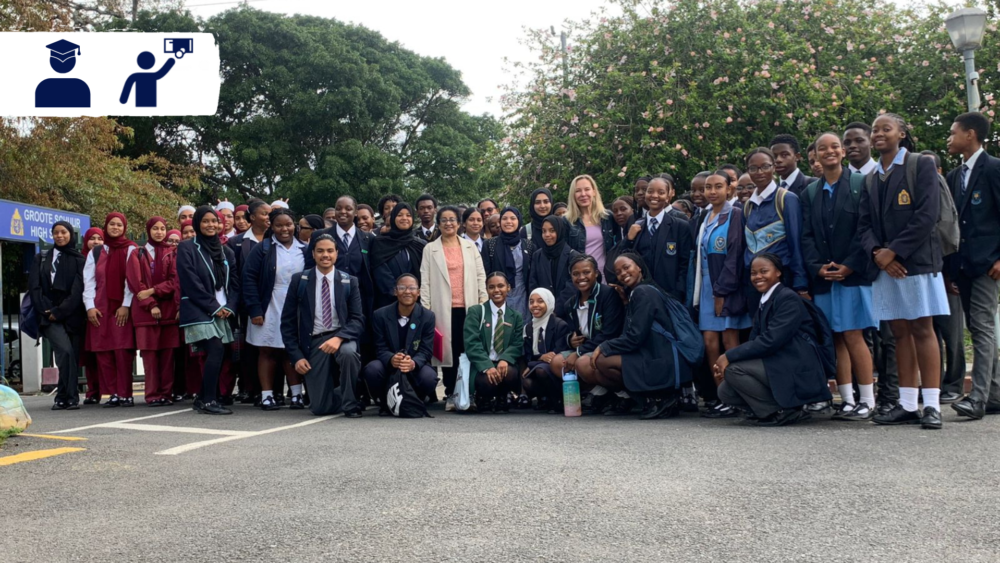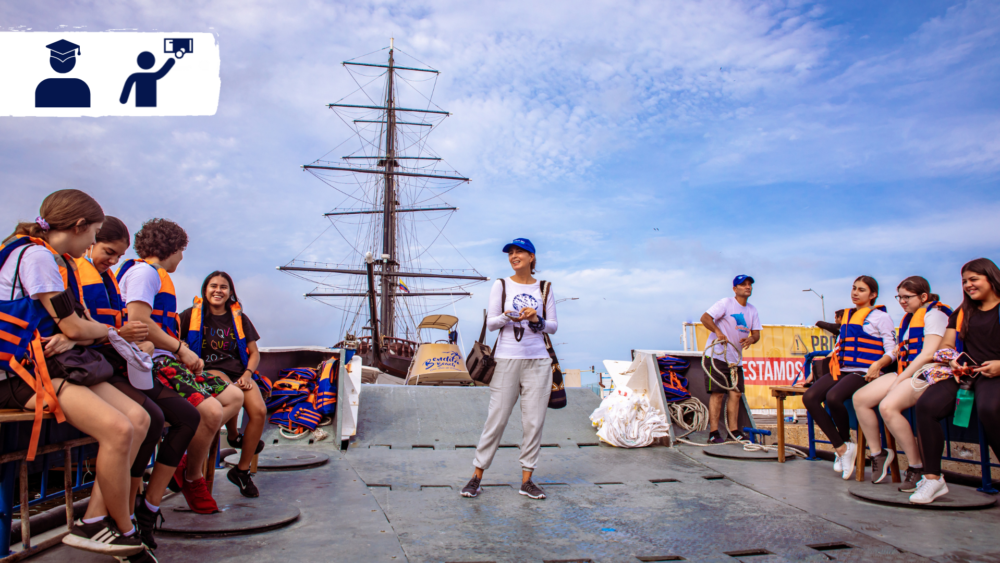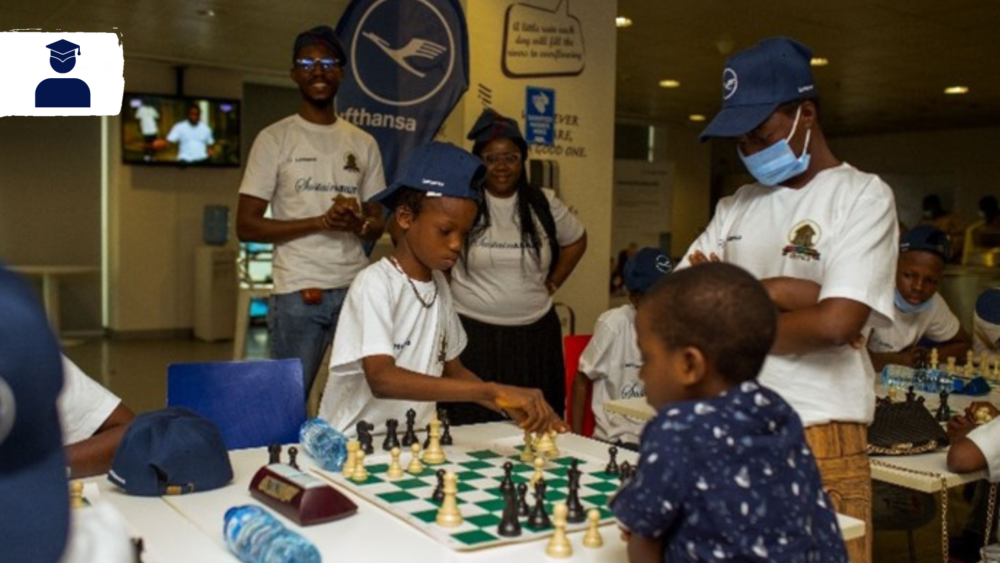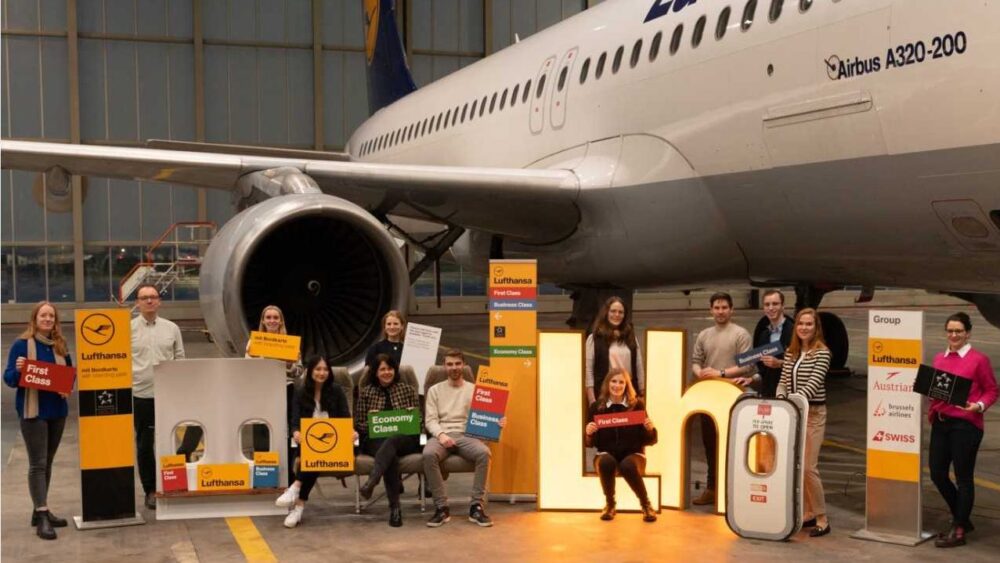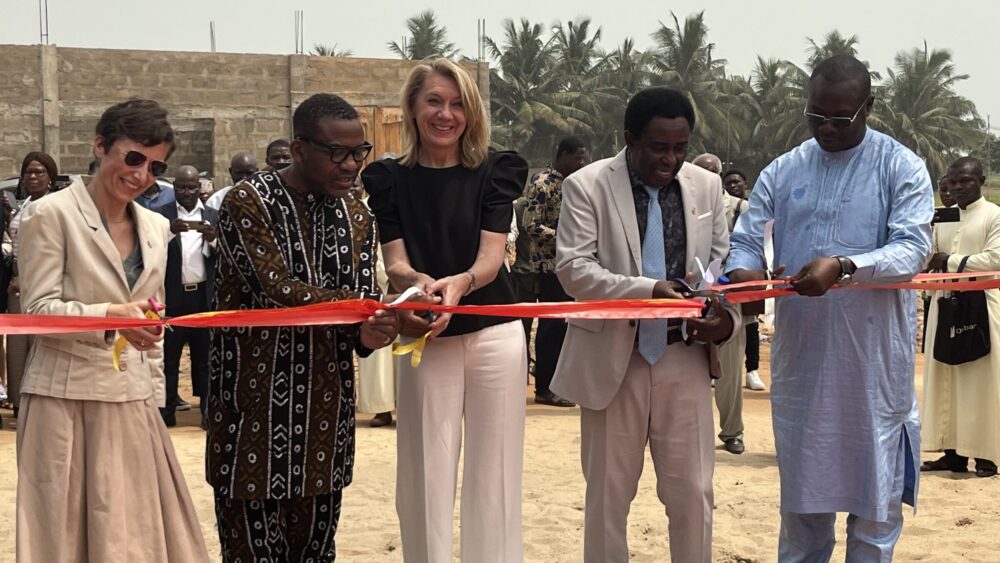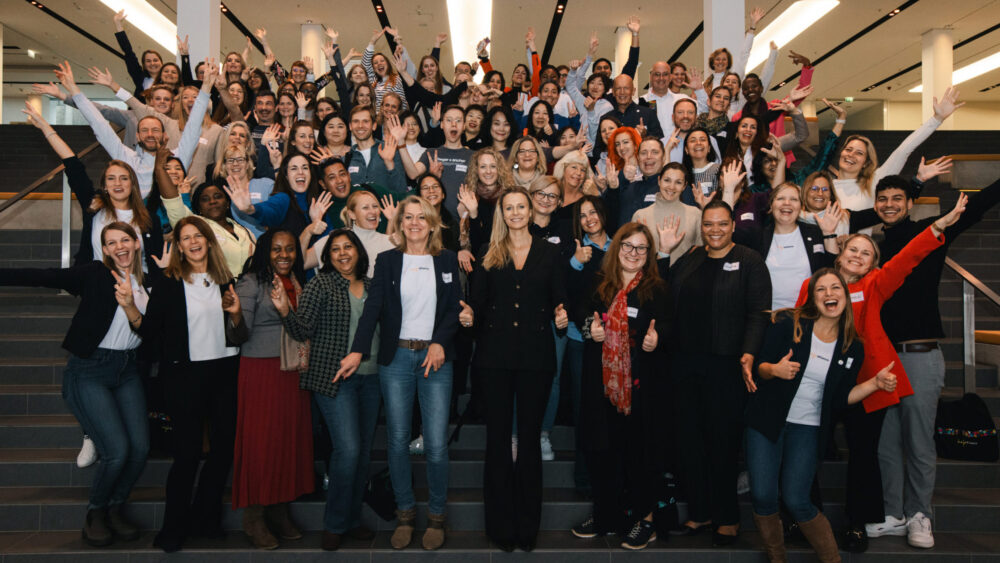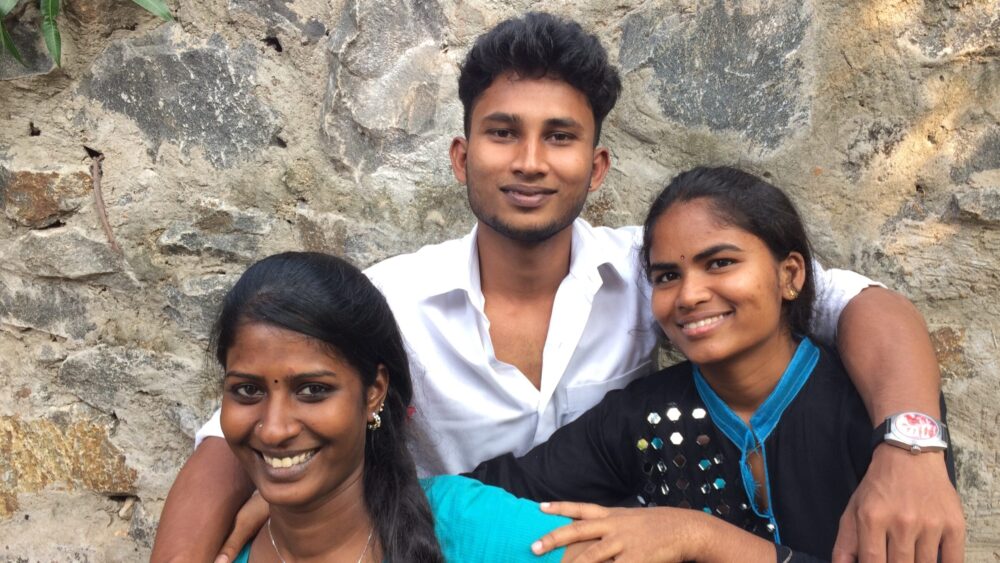
Return to Life for (Un-)lucky Children
The Prana project offers socially disadvantaged people from the poorest sections of the Indian population new perspectives for a free and self-determined life by offering educational and health care services.
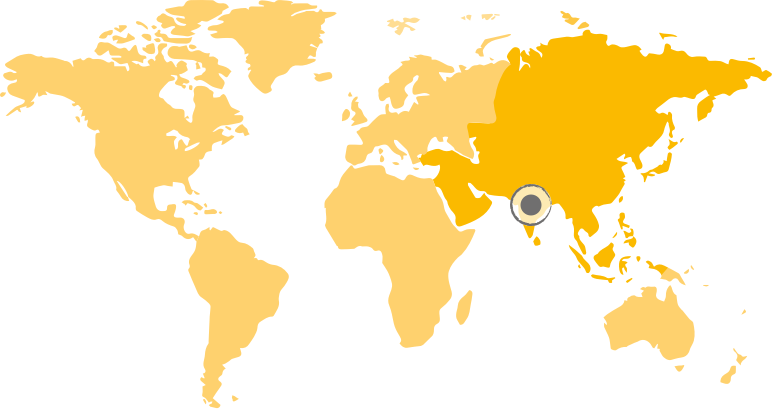
Project Background
India is considered one of the emerging global economic powers. However, in addition to rapidly growing industries and extreme wealth on the one hand, widespread poverty, child labor and social discrimination continue to exist on the other. Although the caste system was officially abolished in 1949, it continues to govern much of society. Below the four main castes are the casteless, who call themselves Dalits and are considered impure. Although by law no one may be discriminated against on the basis of caste, reality paints a different picture. The approximately 200 million Dalits suffer extreme discrimination, exclusion and exploitation. In addition, women in India are subject to severe discrimination. The extremely patriarchal society assigns them a lower status than men, female fetuses are often aborted despite prohibitions, and girls are systematically neglected and mistreated. They have fewer opportunities to access education, are often married off at an early age, and frequently experience domestic violence within marriage. In addition, the traditional payment of bride money often plunges the entire family into hopeless debt.
Target Group
In the South Indian village of Periyamudaliyarchavadi near Pondicherry, many villagers working as fishermen were deprived of their livelihoods in the 2004 tsunami. In addition, especially in the south of India, the idea dominates that there are people – especially women, children and people with disabilities – who bring misfortune to others simply by their existence. In concrete terms, this means avoidance, exclusion and stigmatisation of those affected, and they are often cast out of the family. Furthermore, the caste-less Dalits are socially ostracised or even threatened and denied any access to education or health care.
Project Goals
In the southern Indian village of Periyamudaliyarchavadi near Pondicherry, many villagers working as fishermen were deprived of their livelihoods in the 2004 tsunami. In addition, particularly in southern India, there is a dominant perception that there are people – especially women, children and people with disabilities – who bring misfortune to others simply by existing. In concrete terms, this means shunning, exclusion and stigmatization of those affected; they are often cast out of the family. Furthermore, the casteless Dalits are socially ostracized or even threatened and rarely have access to education or health care.
The project was founded in 2004 immediately after the tsunami. In addition to concrete emergency aid after the natural disaster, several long-term projects have been initiated in the poor fishing village over the years. The core concern of the project is to teach children from very poor families that belonging to different classes and religions does not have to be a reason for enmity and that peaceful coexistence is worth striving for. A first step in this direction was independent teaching within the framework of an afternoon school. Children from three religions (Hinduism, Christianity, Islam) and two castes (farmers and fishermen) as well as the village’s casteless Dalits attended this school together after the regular village school. The children also received daily meals at the project.
As a result of the school closures due to the pandemic for many years, followed by the obligatory attendance of state-run tutoring centers, as well as decreasing funding, the Prana School had to be shut down at least temporarily at the end of 2022. A new start with initially one first class is planned for summer 2023. In parallel, Jagga, a young woman who has been mentored and trained for many years as part of the project, has founded a small satellite school in her home village, where she supports and encourages her students in line with the concept of the project.
The Prana Afternoon School has been so successful so far that an above-average number of students have been able to graduate with top grades. In these cases, the state awards scholarships, but these only cover part of the study costs incurred. help alliance has therefore facilitated the establishment of a study fund from which the missing money is made available in the form of a loan. In this way, young, talented people from the poorest backgrounds are given an opportunity for vocational training and further education that would otherwise be denied them.
Some women and children who have been ostracized and rejected by society are also able to find a place to live in the “Lucky Children” housing project, where they are looked after and supported in their education. Many of the lucky children have since grown up to become successful young adults.
In the area of “Woman Empowerment,” the project offers literacy courses for women. In the project’s own tailoring workshop, they can also learn to make garments and generate their own income by selling them. Another component of the project is a therapy center for disabled children, where they are treated by a physiotherapist, a masseuse and a caregiver. In addition, the parents learn how to continue working with their children at home. These therapies enjoy a high level of acceptance, as traditional healing methods are combined with targeted physiotherapy. The therapy program ensures that children with disabilities not only experience relief from their ailments, but also have their dignity preserved and are not exploited in their helplessness.
In all its activities, the project pursues a clear strategy: people in need should not be turned into beggars and supplicants dependent on help. The “unfortunate children” and their mothers are enabled to free themselves from their misery and distress through education and/or therapy programs. In this way, “unfortunate children” become fortunate children. By promoting self-confidence, especially among women and girls, they are empowered to act independently and to continue their own development. In this way, all beneficiaries in the project are provided with a basis from which they can create new perspectives for themselves, leading to a free and self-determined life.

